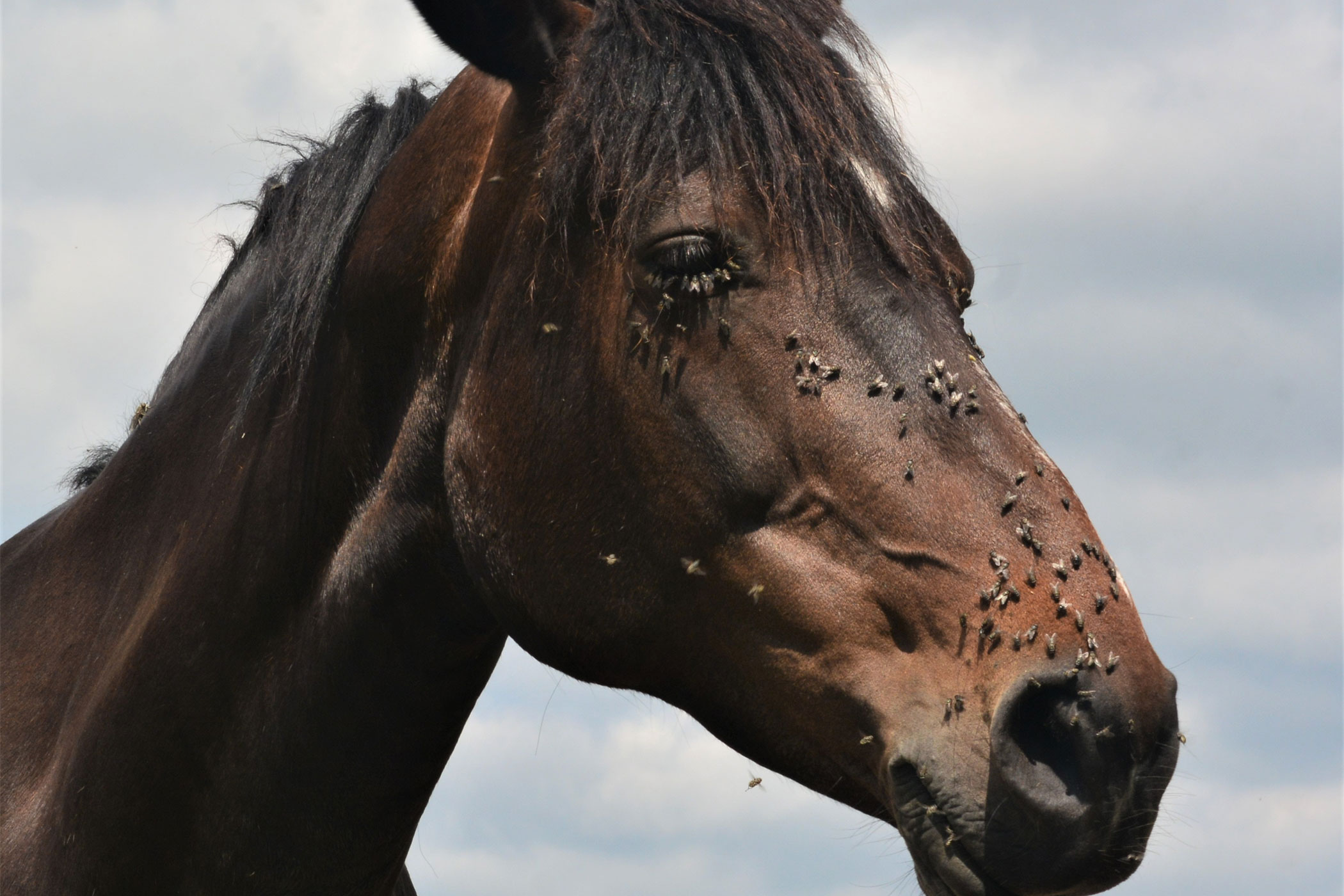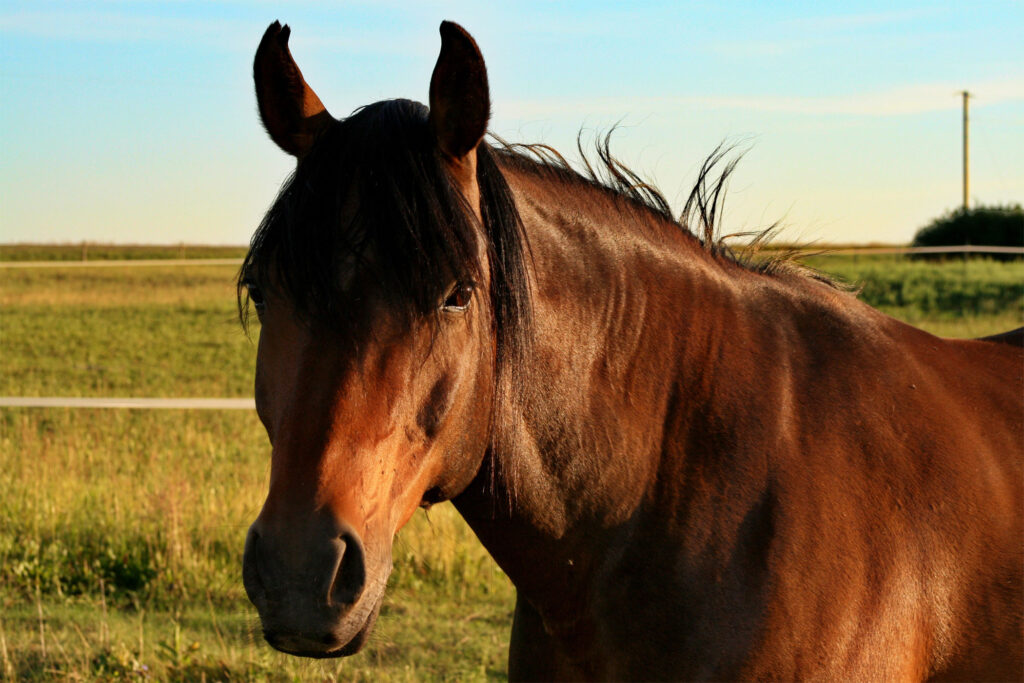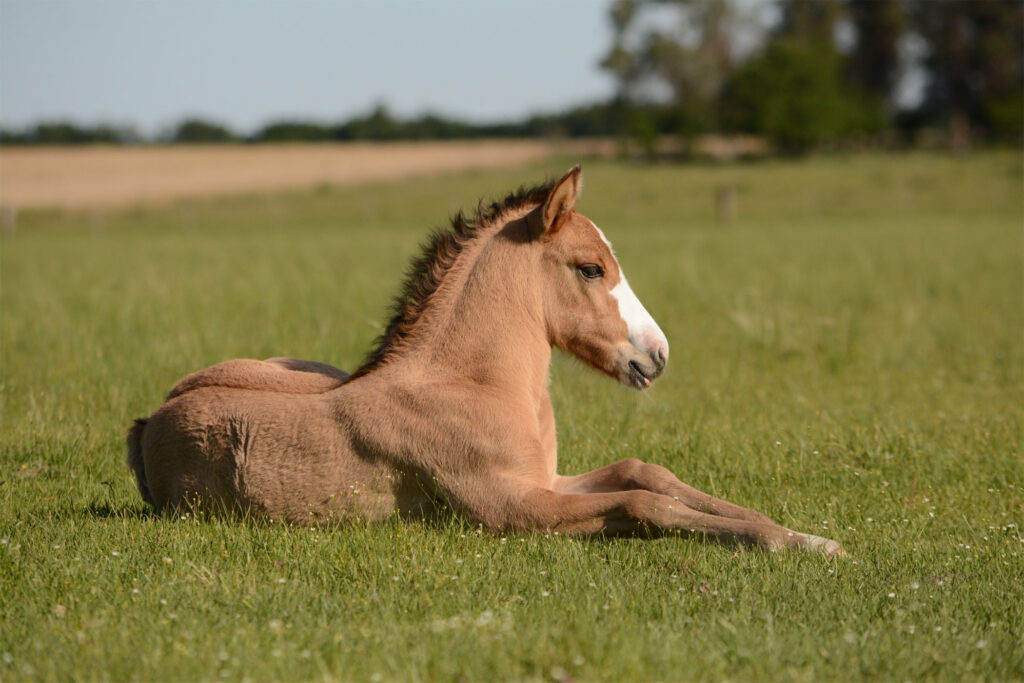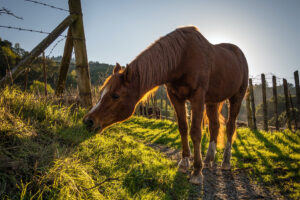
Equine Health: As horse owners, we strive to provide the best care for our beloved equine companions. However, flies, worms, and other parasites can pose significant challenges to their health and well-being. In this comprehensive guide, we will explore effective strategies to tackle these pesky insects and parasites, ensuring the optimal health of your horse.
1: Understanding the Threat:
1.1 The Impact of Flies: Flies are not only a nuisance to horses but also potential carriers of diseases. They can cause irritation, discomfort, and distress to our equine friends. Understanding the different types of flies, their life cycles, and their common breeding grounds will help us develop effective prevention and control measures.
1.2 The Dangers of Worm Infestation: Internal parasites, particularly worms, can wreak havoc on a horse’s digestive system, leading to malnutrition, weight loss, and a weakened immune system. Recognizing the signs of worm infestation and implementing appropriate deworming protocols are vital for the overall health of your horse.

2: Preventive Measures:
2.1 Stable Management: Maintaining a clean and well-organized stable environment is crucial in preventing the proliferation of flies and parasites. Regular removal of manure, proper drainage, and effective waste management are essential steps to minimize the presence of breeding grounds.
2.2 Fly Control Strategies: Implementing a multi-faceted approach to fly control is key. This may involve installing fly traps, utilizing fly sheets and masks, applying fly repellents, and creating fly-free zones using fans or screens. By employing a combination of these methods, we can significantly reduce the annoyance caused by flies.
2.3 Pasture Management: Well-maintained pastures contribute to a healthier equine environment. Regular mowing, rotational grazing, and strategic manure removal help minimize the exposure of horses to parasites. Fencing off wet or muddy areas and avoiding overcrowding are additional measures that can reduce the risk of infestation.
2.4 Proper Nutrition and Hygiene: Ensuring horses receive a balanced diet, with appropriate amounts of forage and concentrates, is crucial in maintaining their overall health and strengthening their immune systems. Additionally, practicing good hygiene by cleaning and disinfecting feeding and watering equipment helps prevent the spread of parasites.
3: Deworming Protocols:
3.1 Understanding Dewormers: Different types of dewormers are available, each targeting specific parasites at various stages of their life cycles. Familiarize yourself with the types of dewormers and work closely with your veterinarian to develop an effective deworming schedule tailored to your horse’s needs.
3.2 Strategic Deworming: Implementing a strategic deworming program involves performing fecal egg counts and selecting the appropriate deworming agents accordingly. This approach helps minimize the unnecessary use of dewormers, reducing the risk of parasite resistance and ensuring their continued efficacy.
3.3 Rotational Grazing: Utilizing rotational grazing practices can help break the parasite life cycle. By moving horses to different pastures periodically, the parasites’ chances of survival and re-infestation are significantly diminished.

4: Natural and Alternative Approaches:
4.1 Integrated Pest Management: Integrated Pest Management (IPM) combines multiple strategies, such as biological controls, habitat modification, and targeted pesticide use, to minimize the impact of insects while reducing reliance on chemical treatments. Employing IPM principles can be an effective and environmentally friendly approach to pest management.
4.2 Herbal and Natural Remedies: Certain herbs and natural remedies have shown promise in repelling flies and supporting intestinal health. Products containing ingredients like garlic, neem oil, and diatomaceous earth are believed to have insect-repelling properties and may be used as part of an integrated approach to pest control.
5: Veterinary Care and Monitoring:
5.1 Regular Veterinary Examinations: Scheduling routine veterinary check-ups enables early detection of any underlying health issues, including parasite infestation. Your veterinarian can perform fecal exams, assess your horse’s overall health, and provide guidance on appropriate deworming protocols.
5.2 Observing Behavioral and Physical Signs: Keeping a watchful eye on your horse’s behavior, coat condition, weight, and appetite can provide important clues about their health status. Unexplained weight loss, diarrhea, or a dull coat may indicate the presence of parasites, warranting veterinary attention.
Conclusion: By understanding the threats posed by insects and parasites and implementing appropriate preventive measures, deworming protocols, and alternative approaches, we can safeguard our horses’ health and well-being. Regular veterinary care and diligent monitoring play a crucial role in maintaining optimal equine health. Remember, a healthy horse is a happy horse!






